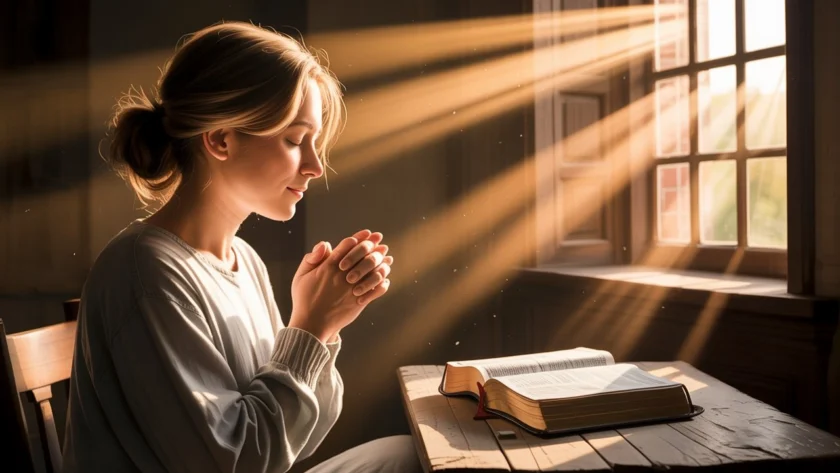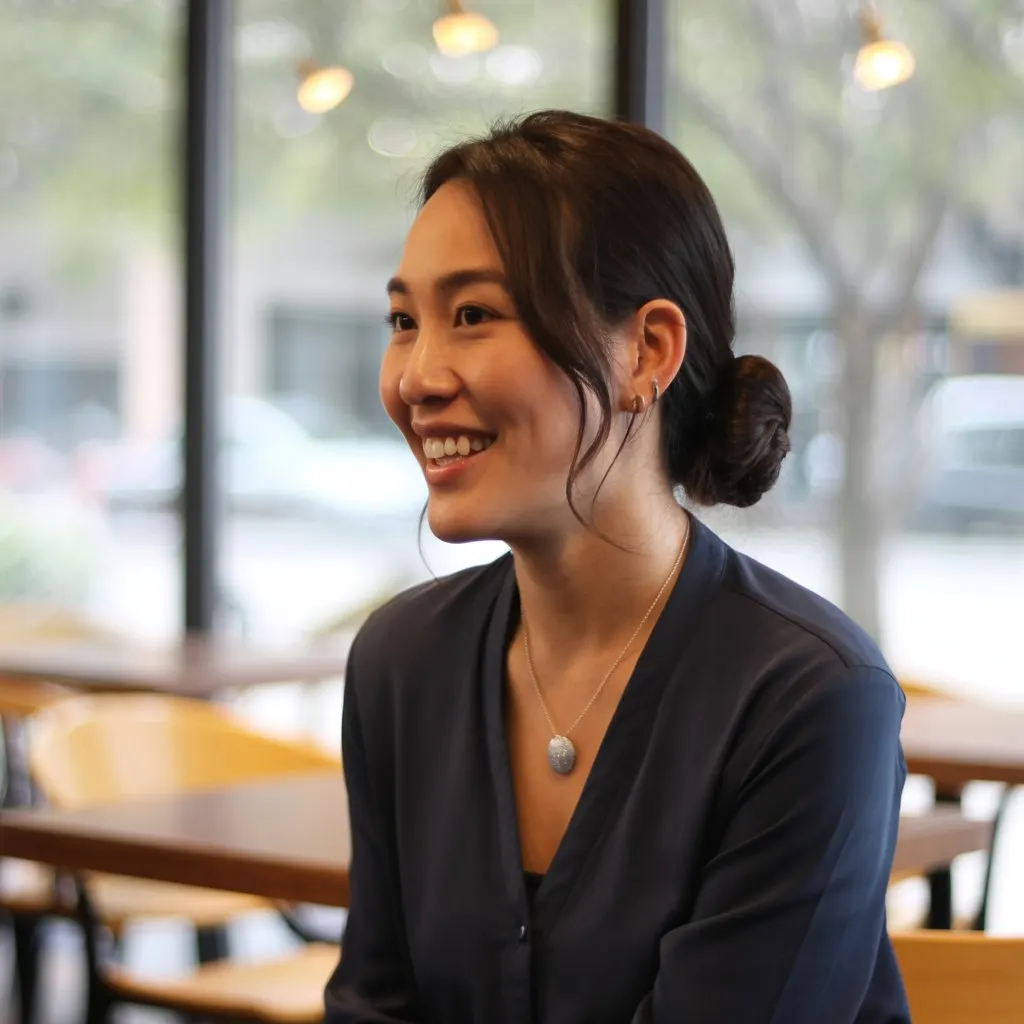You know that feeling, right? When your heart’s racing, your thoughts are spiraling, and someone suggests you count your blessings like it’s some magic cure-all?
But here’s what I’ve come to understand after years of wrestling with anxiety and deepening my faith: gratitude isn’t about slapping a positive spin on genuine suffering. It’s something far more profound—and yes, it can actually rewire how our anxious brains work. I’m not talking about toxic positivity or pretending everything’s fine when it’s not. I’m talking about a gentle, intentional practice that’s literally changed how I experience anxiety on a daily basis.
The science backs this up, and so does Scripture. When Paul wrote about being anxious for nothing and instead presenting our requests to God with thanksgiving, he wasn’t being dismissive of real struggles. He was offering us a lifeline—a way to interrupt the anxiety cycle that so many of us know too well.
Why Gratitude Works When Anxiety Hits
Let me share something I learned the hard way: anxiety and gratitude actually can’t fully occupy the same mental space at the same time. I know that sounds simplistic, but stay with me here.
When I’m spiraling into worry about the future or replaying past mistakes, my brain is essentially time-traveling. Anxiety pulls us out of the present moment—it’s always focused on what might happen or what already did. But genuine gratitude? It anchors us right here, right now. It’s one of the most powerful grounding techniques I’ve discovered, and I didn’t find it in a psychology textbook first—I found it in my Bible.
There’s actual neuroscience behind this. When we practice gratitude, our brains release dopamine and serotonin—those feel-good neurotransmitters that naturally combat the stress hormones flooding our systems during anxiety. I’m not saying gratitude is a substitute for therapy or medication when you need them (I’ve benefited from both), but it’s a tool that works alongside everything else.
Here’s what changed for me: I stopped thinking of gratitude as something I should feel and started seeing it as something I could practice, even when I didn’t feel particularly thankful.
The Biblical Foundation: More Than Positive Thinking
You’ve probably heard Philippians 4:6-7 a hundred times: “Do not be anxious about anything, but in every situation, by prayer and petition, with thanksgiving, present your requests to God.” For years, I read right past that phrase “with thanksgiving.” I focused on the “do not be anxious” part (which, let’s be real, feels impossible when you’re in the thick of it) and missed the practical instruction embedded right there.
Paul wasn’t writing from a beach vacation, remember. He penned these words from prison, facing genuine uncertainty and danger. When he talked about thanksgiving, he wasn’t speaking from a place of easy circumstances—he was sharing a survival strategy that worked in the worst conditions.
The Psalms show us this pattern over and over. David didn’t hide his anxiety or despair, but he consistently pivoted toward remembering God’s faithfulness. Look at Psalm 42—it starts with “Why are you cast down, O my soul? Why so disturbed within me?” That’s anxiety, plain and simple. But then comes the pivot: “Put your hope in God, for I will yet praise him.”
That word “yet” is everything. It means we can acknowledge the anxiety and choose gratitude. They can coexist in the same moment.
How I Actually Practice Gratitude When Anxiety Strikes
Now, I’m not going to tell you to just start listing things you’re grateful for when you’re having a panic attack. That’s not realistic, and it’s not what I do either. But I have developed some practices that actually help, and I want to share them with you.
The Five Senses Gratitude Reset
When I feel anxiety building—that familiar tightness in my chest, the racing thoughts starting—I do what I call a “five senses gratitude scan.” It sounds fancy, but it’s actually really simple. I pause and identify one thing I’m grateful for that I can experience with each sense right in that moment.
What do I see that I’m thankful for? Maybe it’s Bailey, my rescue dog, sleeping peacefully on the couch. What do I hear? Perhaps it’s rain on the roof, that sound that’s always soothed me. What can I touch that brings comfort? The soft blanket on my lap, the warm coffee mug in my hands.
This practice does two things at once: it grounds me in the present moment (pulling me out of anxious future-thinking), and it redirects my brain toward gratitude. I’m not pretending the anxiety isn’t there—I’m just not letting it be the only thing I’m experiencing.
The “Even Now” Prayer
I learned this from a Christian counselor who changed my life. When anxiety feels overwhelming, I pray a simple “even now” prayer. It goes something like this:
“God, even now when I’m feeling anxious about [specific worry], I thank you for [specific thing]. Even now when my mind is racing, I’m grateful that you’re with me in this moment.”
The “even now” acknowledges the reality of what I’m feeling while simultaneously practicing thanksgiving. It’s not denial—it’s defiance against the lie that anxiety tells us, which is that nothing good exists when we’re struggling.
Gratitude Journaling (But Not the Way You Think)
I know, I know—everyone talks about gratitude journals. But here’s how I do it differently: I don’t just list random things I’m grateful for. Instead, I specifically write about moments when God showed up in my anxiety.
Maybe it was a friend who texted at exactly the right moment. Maybe it was getting through a situation I was dreading and realizing it wasn’t as bad as my anxiety predicted. Maybe it was simply waking up and having one moment of peace before the worries rushed in.
This creates a record—a tangible reminder that I can look back on when anxiety tries to convince me that nothing ever gets better. It’s my own personal “stone of remembrance,” like the ones the Israelites built to remember God’s faithfulness.
The Science Meets Scripture Moment
Here’s something fascinating that I love: modern psychology is essentially confirming what Scripture has told us all along. Researchers have found that people who regularly practice gratitude experience lower levels of anxiety and depression. They sleep better. They have stronger immune systems. They’re more resilient in the face of stress.
One study showed that writing gratitude letters (even if you never send them) significantly reduced symptoms of anxiety and depression. The participants weren’t avoiding their problems or pretending life was perfect—they were training their brains to notice good alongside the difficult.
This is exactly what the practice of thanksgiving in Scripture does. When we give thanks, we’re not ignoring reality—we’re seeing all of reality, including the evidence of God’s presence and provision that anxiety wants to blind us to.
I think about that verse in 1 Thessalonians 5:18: “Give thanks in all circumstances; for this is God’s will for you in Christ Jesus.” It doesn’t say “for all circumstances”—it says “in” them. There’s a difference. We’re not thanking God for the anxiety itself, but we can thank Him in the midst of it—for His presence, for His promises, for the ways He’s showing up even when we’re struggling.
When Gratitude Feels Impossible
Let me be really honest here: there are days when gratitude feels like climbing Mount Everest. There are seasons when anxiety is so heavy that finding something to be thankful for feels like a cruel joke.
I’ve had those days. I’ve had seasons where my anxiety was so intense that I could barely function, let alone feel grateful.
In those moments, I’ve learned to start impossibly small. And I mean impossibly small. I’m thankful I’m breathing. I’m thankful for water to drink. I’m thankful that this moment will eventually pass.
Sometimes gratitude during severe anxiety looks like thanking God that you made it through the last five minutes and asking for His help with the next five. That’s enough. That counts.
I also want to say this clearly: if you’re struggling with clinical anxiety or depression, gratitude practices are a supplement, not a replacement, for professional help. I see a therapist. I’ve taken medication when I needed it. And I practice gratitude. All of these things work together.
God often provides healing through doctors, counselors, and medication. Seeking help isn’t a lack of faith—it’s wisdom. I wish someone had told me that years ago when I was suffering in silence, thinking that “enough faith” should be sufficient to overcome anxiety on its own.
Building a Sustainable Gratitude Practice
The key to using gratitude to ease anxiety isn’t doing it perfectly—it’s doing it consistently, even imperfectly. Here’s what’s worked for me:
I keep it simple. Every morning with my coffee (which is basically a sacred ritual at this point), I thank God for three specific things. Not generic stuff like “my health” or “my family,” but specific details. “Thank you for how Bailey made me laugh yesterday when he tried to catch that leaf.” “Thank you that I got through that difficult conversation without having a panic attack.” “Thank you for the text from Sarah checking in on me.”
The specificity matters because it trains my brain to actually notice these moments throughout the day. I find myself thinking, “Oh, this could go in tomorrow’s gratitude list,” which means I’m actively looking for evidence of good things even when anxiety is present.
I also practice what I call “preemptive gratitude” before situations that typically trigger my anxiety. If I have a meeting that makes me nervous, I’ll thank God beforehand for His presence with me in it. If I’m facing a difficult day, I’ll thank Him in advance for the strength to get through it. This isn’t presumption—it’s faith. It’s remembering that He’s been faithful before and trusting He’ll be faithful again.
The Community Component
Here’s something I didn’t expect: sharing gratitude with others has become one of my most powerful tools against anxiety. Every week, my small group texts one thing we’re grateful for. It’s not forced or fake—it’s real stuff, and it’s varied. Sometimes it’s big (a job offer, a healing diagnosis), sometimes it’s tiny (a good parking spot, a funny meme).
Reading what others are grateful for multiplies the effect. When my friend thanks God for helping her through a panic attack, it reminds me that I’m not alone in this struggle. When someone shares gratitude for a small moment of peace, it helps me notice those moments in my own life too.
The writer of Hebrews talks about spurring one another on toward love and good deeds. I think sharing gratitude does exactly that—it spurs us on toward noticing God’s faithfulness and choosing hope over anxiety.
Creating Your Own Gratitude Rhythm
What I’ve learned is that gratitude as an anxiety-easing tool isn’t one-size-fits-all. What works for me might not work exactly the same for you, and that’s okay. The goal is to find a rhythm of thanksgiving that feels authentic and sustainable for your life.
Maybe you’re a morning person, and starting your day with gratitude sets the tone. Maybe you’re like my friend who keeps a gratitude note in her phone and adds to it throughout the day. Maybe you need to speak your gratitude out loud in prayer, or maybe writing it down helps you process better.
The method matters less than the consistency and authenticity. Start where you are. If gratitude journaling feels like another item on an overwhelming to-do list, skip it. If praying out loud feels awkward, write it down. If you can’t think of three things, start with one.
The Long Game: How Gratitude Changes Us
Here’s what I want you to know: gratitude isn’t a quick fix for anxiety. I still have anxious days. I still struggle. But over time—and I’m talking months and years, not days—practicing gratitude has fundamentally changed my relationship with anxiety.
It hasn’t eliminated anxiety from my life (I wish!), but it’s created space alongside the anxiety for joy, peace, and hope to exist too. My anxiety no longer has a monopoly on my attention or my emotions.
I notice things now that I used to miss entirely. I’m quicker to recognize when God shows up in small ways. I have evidence—pages and pages of it in my journals—that even in my hardest seasons, there was always something to be grateful for. That evidence becomes ammunition against the lies anxiety tells.
The apostle Paul’s words about peace guarding our hearts and minds through thanksgiving aren’t just beautiful poetry—they’re a practical instruction manual for people like us who battle anxiety. When we bring our anxious thoughts to God with thanksgiving, something shifts. Not always immediately, not always dramatically, but over time, persistently, real change happens.
Your Next Step
If you’re reading this and feeling overwhelmed, wondering how you could possibly add another thing to your plate when anxiety already feels like too much—I get it. I’ve been there.
But what if gratitude isn’t something extra you have to do? What if it’s actually a way to make the burden lighter?
Start small today. Right now, in this moment, what’s one thing—just one—that you can thank God for? It might be something as simple as the fact that you’re still here, still trying, still searching for hope.
That’s enough. That’s a start.
God meets us in our anxiety, not above it or around it, but right in the middle of it. And sometimes, His presence becomes most real to us when we pause—even in our panic—to whisper a shaky “thank you” for the fact that we’re not alone in this struggle.
You’re not alone. And even now, even in this moment of anxiety or worry or fear, there is something to be grateful for. Maybe it’s just that you read this far, that you’re still looking for help, that you haven’t given up.
That gratitude—small as it might feel—is powerful. It’s a crack in anxiety’s fortress. And where light gets in, hope follows.




